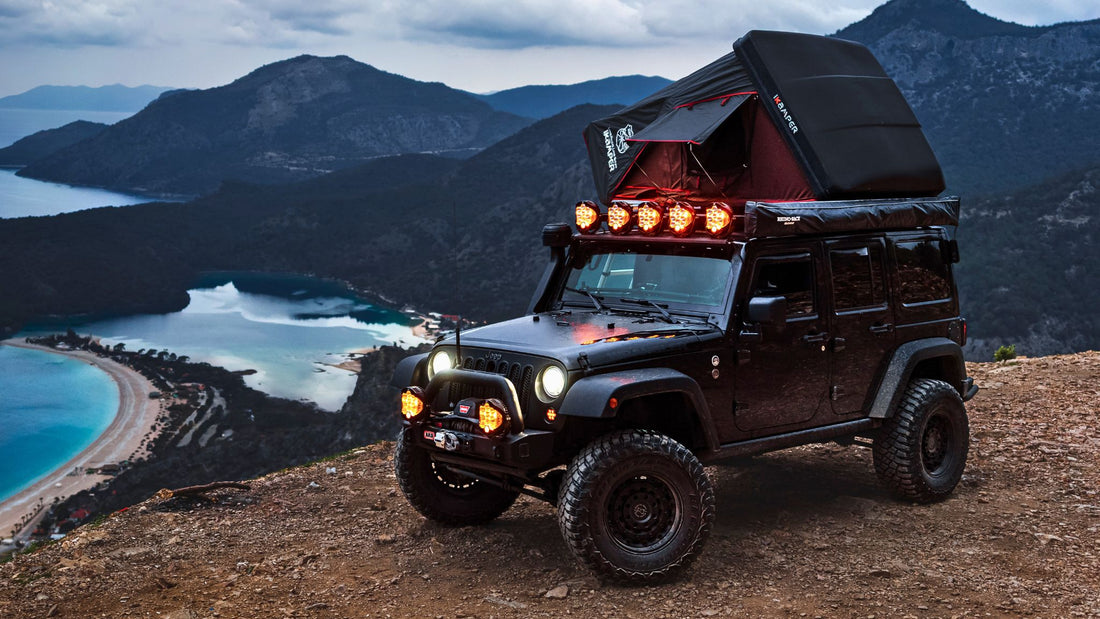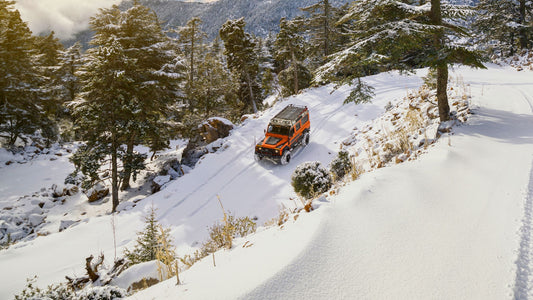Overlanding is a type of adventure travel that involves exploring remote and rugged terrain in a self-sufficient vehicle. It's a popular activity among outdoor enthusiasts seeking to escape the urban hustle and bustle and experience the natural beauty of the world. Overlanding offers a unique way to travel and explore, all while enjoying the freedom of the open road.
SELF-SUFFICIENT VEHICLES
One of the key aspects of overlanding is the use of self-sufficient vehicles. These vehicles are designed to be rugged, reliable, and capable of handling rough terrain. Overlanders often modify their vehicles to make them more suitable for off-road travel, such as adding larger tires, a lift kit, off-road lights, and much more. Many overlanders also choose to equip their vehicles with camping gear, such as a roof top tent, a portable stove, a fridge, and even a shower.
TYPES OF VEHICLES

While overlanding can be done in any type of vehicle, most overlanders prefer 4x4 vehicles. These vehicles provide ample space for gear and supplies and are well-suited for off-road travel. However, it's important to note that overlanding is not about the type of vehicle you use; it's about the adventure and the experiences that you have along the way.
DESTINATIONS

One of the most appealing aspects of overlanding is the opportunity to get away from it all and explore remote and unspoiled landscapes. Overlanders seek out destinations that are off the beaten path, such as backcountry trails, dirt roads, and remote wilderness areas. These destinations provide a unique opportunity to experience nature in all its glory, whether it's a stunning mountain vista, a serene alpine lake, or a majestic forest.
CULTURAL EXPERIENCES
Overlanding is also a great way to experience new cultures and connect with people from different backgrounds. Many overlanders travel to foreign countries to experience new cultures, learn about different ways of life, and connect with locals. Overlanding provides a unique opportunity to immerse oneself in the local culture, whether it's through trying new foods, learning new languages, or participating in local customs.
CAMPING AND OUTDOOR RECREATION

Overlanding is often associated with camping and outdoor recreation, as most overlanders prefer to set up camp in remote locations where they can enjoy the tranquillity of the great outdoors. Overlanders must be self-sufficient and bring all the necessary gear and supplies to survive in the wild. This requires careful planning and preparation, as overlanders must consider everything from food and water to shelter and safety equipment.
PLANNING AN OVERLANDING TRIP
When it comes to planning an overlanding trip, there are a few key factors to consider. First, it's important to research the route and destination thoroughly, including any potential hazards or obstacles that may be encountered along the way. It's also important to ensure that the vehicle is in good working condition and to bring along any necessary spare parts and tools. Overlanders must also pack all the necessary gear and supplies, including food, water, shelter, and safety equipment.
SKILLS AND EXPERTISE
Overlanding requires a certain level of skill and expertise, as well as a willingness to take on new challenges and overcome obstacles. Overlanders must be prepared for anything, from getting stuck in the mud to crossing a river. It's important to have the necessary skills and knowledge to handle unexpected situations, such as a breakdown or a medical emergency.
CONCLUSION
In conclusion, overlanding is a unique and rewarding travel experience that's unlike anything else. It allows travelers to explore remote and unspoiled landscapes, experience new cultures and ways of life, and push themselves to their limits.




